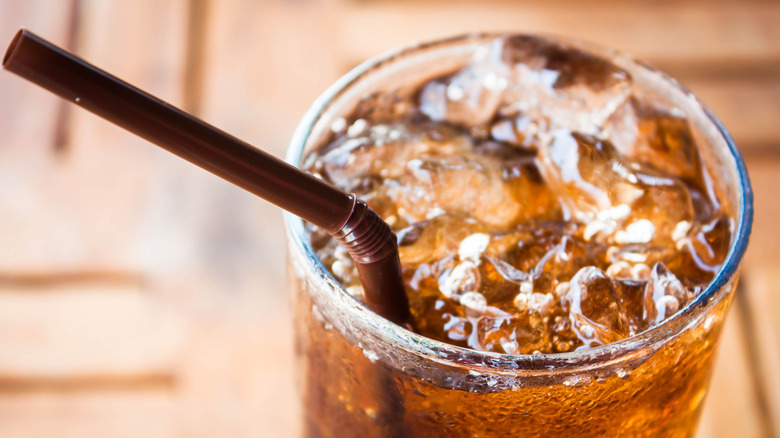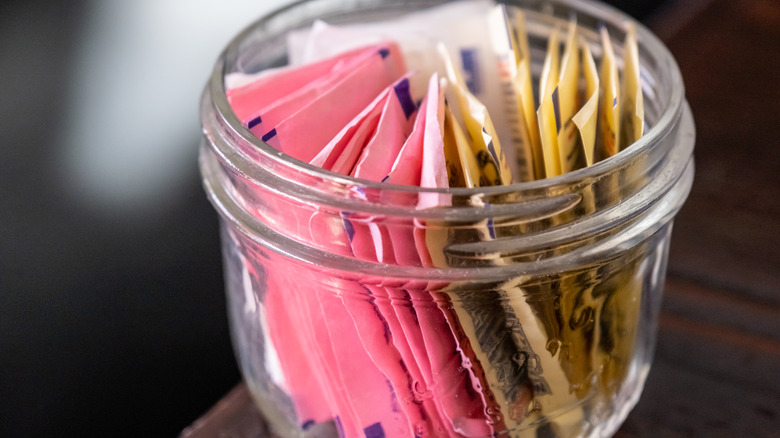WHO Reveals A Scary Link Between Diet Soda And Cancer
That beloved sweet taste of Diet Coca-Cola can be traced back to one ingredient: aspartame. Branded under names such as NutraSweet® and Equal®, aspartame can be found on most restaurant tables across the country. Used in various drinks and food items, only a small amount of the artificial sweetener is needed to produce the same sweet taste of sugar itself, according to the American Cancer Society.
Having been around since the 1980s, Reuters reports that the ingredient has now come under scrutiny by the WHO's International Agency for Research on Cancer (IARC) as a possible carcinogen. Such criticisms aren't entirely new, however. Although the evidence has been inconsistent, some past research has suggested a potential link between aspartame and increased cancer risk. Regulated by the U.S. Food and Drug Administration (FDA), the agency has deemed aspartame safe for use as a general-purpose sweetener as long as levels of consumption are kept below the Acceptable Daily Intake (ADI). However, the IARC has plans to formally label aspartame as a possible carcinogen come July.
What does possibly carcinogenic mean?
Whether naturally-occurring or man-made, any cancer-causing substance is considered a carcinogen, according to the National Human Genome Research Institute. Types of carcinogens can range from UV rays to viruses to car fumes — but are all able to prompt cell DNA mutations.
Reuters reports that aspartame is set to receive the label, "possibly carcinogenic to humans." However, experts have pointed out that this label is not indicative of risk to human health, but is instead based on the quality of available scientific research. As such, the "possibly carcinogenic" label means there is limited evidence of cancer-causing risk in humans. Out of four possible labels, "possible carcinogenic" is the second lowest next to "not classifiable."
For this reason, some food industry experts fear the label may cause undue concern amongst the general public. "[P]ublic health authorities should be deeply concerned that this leaked opinion contradicts decades of high-quality scientific evidence and could needlessly mislead consumers into consuming more sugar rather than choosing safe no- and low-sugar options," International Council of Beverages Associations (ICBA) Executive Director Kate Loatman said in a public statement. In light of new research, however, the IARC and the Joint FAO/WHO Expert Committee on Food Additives (JECFA) plans to also revisit the current acceptable daily intake levels for aspartame (via Fortune).


